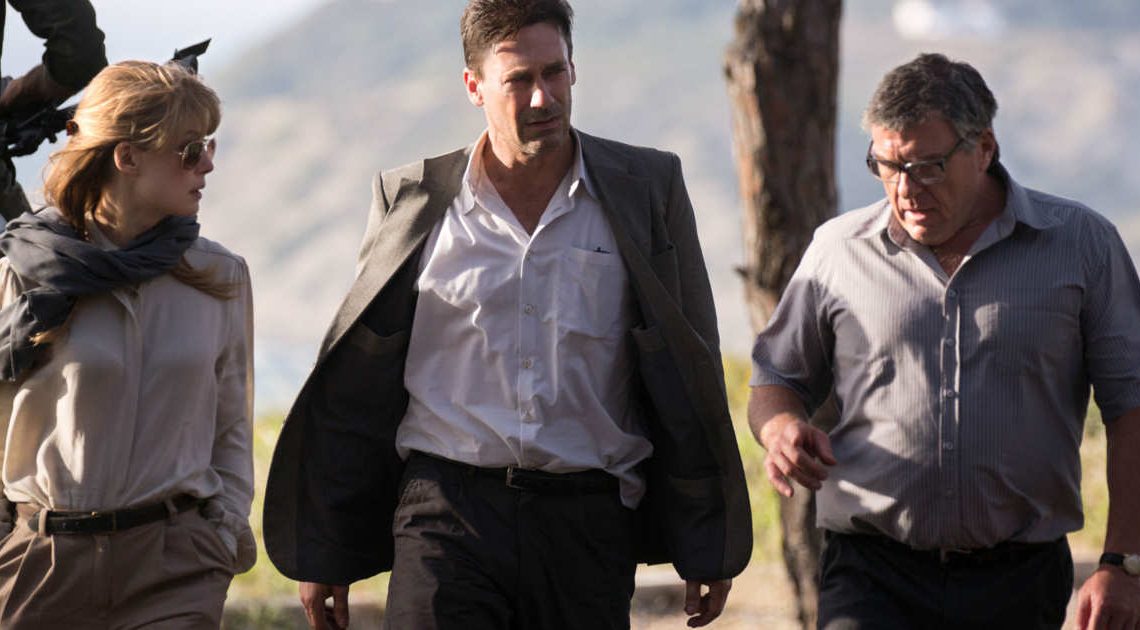Tropic Sprockets / Beirut
By Ian Brockway
In the mode of a political thriller, director Brad Anderson (The Machinist) and screenwriter Tony Gilroy (Michael Clayton) offers a satisfying if somewhat formulaic treatment of Lebanon in the 1970s and 80s. The film stars John Hamm as a US diplomat working in Lebanon who is pushed to the limit by tragedy. Though the rhythm of the scenes and the drama is conventional, the film boasts a solid cast, lead by Hamm and Rosamund Pike who develop a mix of pathos and intrigue.
It is 1972 and Miles (Hamm) is in Beirut with his wife, entertaining guests at a party. Miles is particularly proud of Karim, a Lebanese orphan who he is about to sponsor for adoption. Abruptly Miles friend Cal (Mark Pellegrino) walks in and tells him that Karim has terrorist ties through his brother. Miles is stupefied as a terror team led by the brother invade the party. Shots are fired. Karim is taken and Miles’ wife is killed.
Ten years pass and Miles is now a corporate negotiator. While decompressing in a bar, he is approached to work for the US Government, told that his friend Cal is in danger. When he returns to Beirut, Miles learns to his horror that the now adult Karim (Idir Chender) is responsible for the kidnapping and that he demands his brother’s freedom in return for release of Cal.
The film does a fine job in showing the surreal decay of a city under seige. Singers perform pop music in buildings that have been shelled. Hotel notices on the desk prohibit picture taking in the event of a shooting and bartenders pour drinks as if all is normal and give tense smiles. Hamm is good in portraying a man in monotone dazed by personal trauma. Alcohol is the only antidote. In one scene, Hamm watches on as a bride and groom get married in front of a pile of rubble. It is unclear for an instant whether or not Miles is hallucinating the ceremony.
Rosamund Pike is well suited as a dispassionate CIA agent responsible for the melancholic Miles.
The film shows its style a bit in giving climatic scenes the standard treatment with some drifting camera movements and sinister musical cues. There is the routine smoking and bluster of government agents and a fair bit of sweating and fretting accompanied by the gnashing of teeth, but after all such was the period. “Beirut” is an authentic portrait of Lebanon during the 80s. While you can often sense what’s coming ahead of time, the smooth performances move the story along, making it a vivid time capsule, further boosted by its performances.
Write Ian at [email protected]
[livemarket market_name="KONK Life LiveMarket" limit=3 category=“” show_signup=0 show_more=0]

No Comment